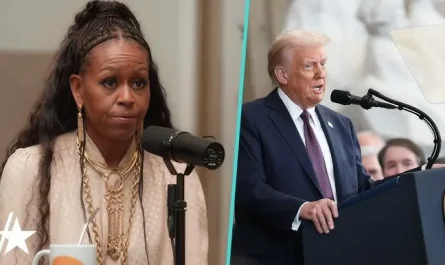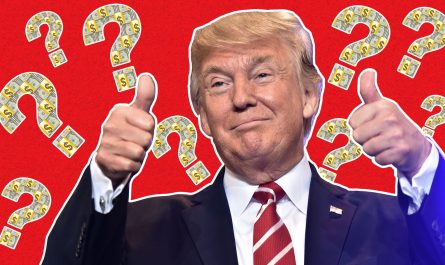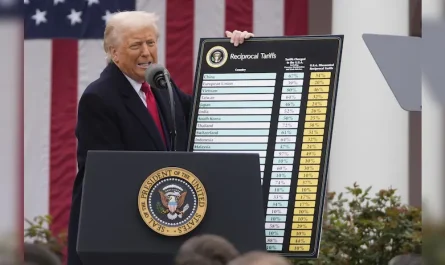The two largest economies in the world are currently engaged in a full-scale trade war.
Beijing has retaliated with a 125% tax on US imports, while Chinese exports to the US are subject to up to 245% levies. Fears of a worldwide recession have increased, and consumers, businesses, and markets are prepared for further uncertainty.
The government of Chinese President Xi Jinping has stated time and time again that it is amenable to talks but has also threatened to “fight to the end” if necessary. Here are some of the tools Beijing has at its disposal to thwart the tariffs imposed by US President Donald Trump.
Being the second-biggest economy in the world, China is better able to withstand the effects of the tariffs than other smaller nations.
With a population of over a billion, it also boasts a sizable domestic market that might relieve some of the strain on exporters who are already feeling the effects of tariffs.
Because Chinese citizens aren’t spending enough, Beijing is still struggling. However, things may alter with a variety of incentives, such as “silver trains” for traveling retirees or subsidies for home equipment.
Furthermore, the Chinese Communist Party is now even more motivated to unleash the nation’s consumer potential as a result of Trump’s tariffs.
Mary Lovely, a US-China trade researcher at the Peterson Institute in Washington, DC, told BBC Newshour earlier this month that the leadership would “very well be willing to endure the pain to avoid capitulating to what they believe is US aggression.”
Since China is an authoritarian government and is not as concerned with short-term public opinion, it also has a larger threshold for suffering. The upcoming election will not judge its leaders.
Unrest is still a worry, though, particularly given the existing unhappiness over a continuing real estate crisis and job losses.
For young people who have only ever experienced a growing China, the economic uncertainty around tariffs is just one more setback.
State media have urged people to “weather storms together” as the Party has used nationalist feelings to defend its retaliatory measures.
Although Beijing has so far adopted a defiant and confident tone, President Xi Jinping may be concerned. The nation was reassured by one official that “the sky will not fall.”
China has been making future investments
China has long been referred to be the factory of the world, but it has been investing billions to become a much more sophisticated one.
It has been vying with the US for technological supremacy under Xi.
It has made significant investments in domestic technology, including chips, AI, and renewable energy.
Examples include BYD, which overtook Tesla as the largest electric vehicle (EV) manufacturer in the world last year, and the chatbot DeepSeek, which was hailed as a fierce competitor to ChatGPT. Local rivals like Vivo and Huawei have been stealing Apple’s valuable market share.
Beijing recently declared its intention to invest over $1 trillion over the next ten years to foster AI innovation.
Although American businesses have attempted to shift their supply chains out of China, they have had difficulty locating the same level of skilled labor and infrastructure in other countries.
China has a decades-long edge that will take time to duplicate thanks to Chinese manufacturers at every point of the supply chain.
China is a powerful adversary in this trade battle because of its unparalleled supply chain knowledge and government backing; in some respects, Beijing has been getting ready for this since Trump’s last administration.
U.S. Treasury Warns: Trade War With China Can’t Last – What Happens Next?
Trump’s Teachings 1.0
Beijing has accelerated its aspirations for a world order that is not led by the United States since Trump imposed tariffs on Chinese solar panels in 2018.
To strengthen links with the so-called Global South, it has invested billions in a controversial infrastructure and trade scheme known as the Belt and Road plan.
As China attempts to wean itself off of the United States, commerce with South East Asia, Latin America, and Africa is expanding.
Previously, 40% of China’s soybean imports came from American farmers; today, that percentage is closer to 20%. Beijing increased its domestic soy production after the last trade war and purchased record amounts of the commodity from Brazil, which is currently its biggest supplier.
“The strategy accomplishes two goals at once. According to Marina Yue Zhang, an associate professor at the University of Technology Sydney’s Australia-China Relations Institute, “it burnishes China’s food security credentials and denies America’s farm belt a once-captive market.”
South East Asia has surpassed the United States as China’s largest export destination. In 2023, China was actually the biggest trading partner for 60 nations, almost twice as many as the US. At the end of 2024, the largest exporter in the world had a record surplus of $1 trillion.
Despite this, China still views the United States, the largest economy in the world, as a vital trading partner. This indicates that Washington may find it challenging to support China in a complex situation.
Beijing has cautioned nations of “reaching a deal at the expense of China’s interests” in response to rumors that the White House may isolate China through bilateral trade talks.
A large portion of the world would not be able to make that decision.
“We can’t choose, and we will never choose [between China and the US],” Tengku Zafrul Aziz, the trade minister for Malaysia, stated to the BBC last week.
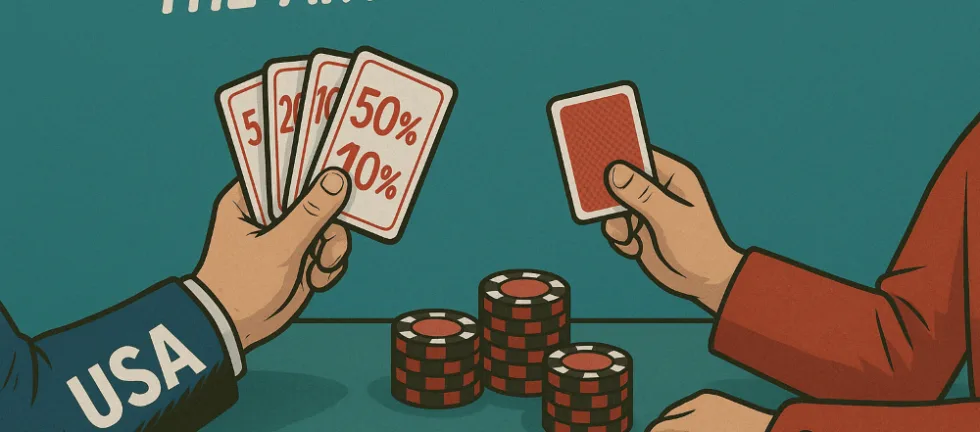
China is now aware of Trump’s blinking moments
After announcing substantial tariffs in early April, Trump remained steadfast, comparing his shocking charges to “medicine” as stocks crashed.
However, following a steep decline in US government bond prices, he reversed course and put a 90-day hold on the majority of those levies. People have long regarded these, also known as Treasuries, as a secure investment. However, trust in the assets has been eroded by the trade war.
Trump’s statement that tariffs on Chinese imports will “come down substantially, but it won’t be zero” is a reference to a de-escalation of trade hostilities with China.
Experts note that Beijing is now aware that Trump might be shaken by the bond market.
Additionally, China owns $700 billion in US government bonds. The only non-US holder with more than that is Japan, a close ally of the United States.
Some contend that this offers Beijing leverage because the prospect of selling or refusing to buy US bonds has been frequently raised by Chinese media as a “weapon.”
However, analysts caution that China will not escape such a scenario undamaged. Instead, it will destabilize the Chinese yuan and cause Beijing’s bond market assets to lose a lot of money.
According to Dr. Zhang, China will only be able to use US government bonds as leverage “up to a point.” “China holds a bargaining chip, not a financial weapon.”
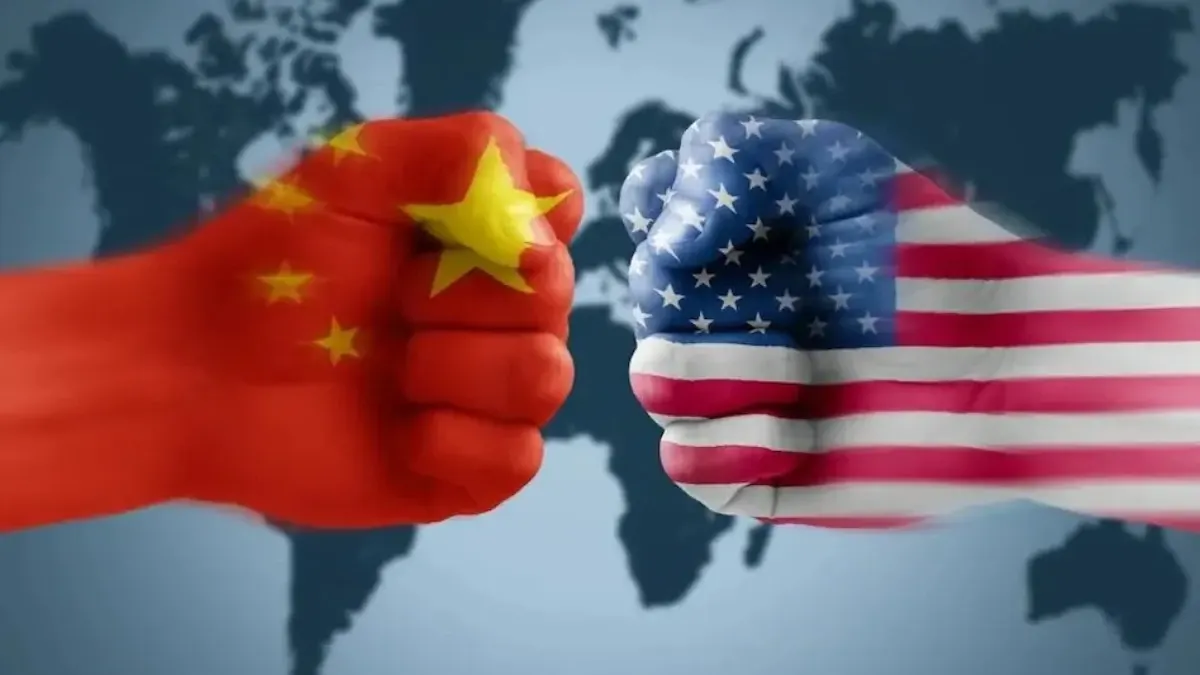
Suffocating rare earths
However, China can weaponize its near-monopoly in the extraction and refinement of rare earths—a variety of elements crucial to the production of modern technology.
Large amounts of these are found in China, including yttrium, which gives jet engines their heat-resistant coating, and dysprosium, which is used in the magnets of wind turbines and electric cars.
Beijing has already limited exports of seven rare earths, including three that are necessary for the production of AI devices, in retaliation for Trump’s most recent tariffs.
The International Energy Agency (IEA) estimates that China produces roughly 61% of rare earths and refines 92% of them. Australia, Japan, and Vietnam have begun mining rare earths, but China’s removal from the supply chain will take years.
China prohibited the export of antimony, another essential element used in many manufacturing processes, in 2024. As a result of panic buying and a rush to locate other sources, its price more than doubled.
The market for rare earth elements is feared to suffer a similar fate, which would seriously impact a number of sectors, including defense and electric vehicles.
The director of Ginger International Trade and Investment, Thomas Kruemmer, previously told the BBC that “everything you can switch on or off probably runs on rare earths.”
“The impact on the US defense industry will be substantial.”

